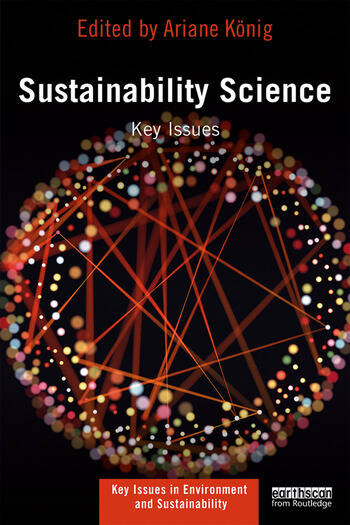
Overview
To fulfil EU policy targets, Luxembourg has committed to feeding 11% of its energy from renewable sources into the grid by 2020. To achieve this target, Luxembourg is focusing on promoting decentralised initiatives for green energy production and establishing citizen energy cooperatives. Is this the right strategy? Can citizen energy cooperatives play an important role in the energy transition in Luxembourg?
These questions were asked by one of the first Preer groups of the Certificate for . The research work carried out by this group was of a very high standard and was recognized by being published as a chapter in the book “Sustainability Science, Key Issues”, edited by Ariane König and Jerome in 2018:
Chapter 13 Democratizing renewable energy production: A Luxembourgish perspective. By Kristina Hondrila, Simon Norcross, Paulina Golinska-Dawson, Vladimir Broz, Aydeli Rios, Jules Muller.
Sustainability Science : Key Issues is a comprehensive textbook for undergraduates, postgraduates, and participants in executive trainings from any disciplinary background studying the theory and practice of sustainability science. Each chapter takes a critical and reflective stance on a key issue or method of sustainability science. Contributing authors offer perspectives from diverse disciplines, including physics, philosophy of science, agronomy, geography, and the learning sciences.
: Key Issues is a comprehensive textbook for undergraduates, postgraduates, and participants in executive trainings from any disciplinary background studying the theory and practice of sustainability science. Each chapter takes a critical and reflective stance on a key issue or method of sustainability science. Contributing authors offer perspectives from diverse disciplines, including physics, philosophy of science, agronomy, geography, and the learning sciences.
This book equips readers with a better understanding of how one might actively design, engage in, and guide collaborative processes for transforming human-environment-technology interactions, whilst embracing complexity, contingency, uncertainties, and contradictions emerging from diverse values and world views. Each reader of this book will thus have guidance on how to create and/or engage in similar initiatives or courses in their own context.
Sustainability Science: Key Issues is the ideal book for students and researchers engaged in problem and project based learning in sustainability science.
Gain an overview over the chapter by reading the abstract
Sustainable development needs new forms of social organisation and innovation that lead to wider systemic change. This chapter applies the multi-level perspective of the Dutch theory of socio-technical transition (Verbong and Geels) to two renewable energy cooperatives in Luxembourg, where citizens, local policy makers and civil society groups have put into place a social business model, collectively producing and selling solar-generated power. Relating the case studies to definitions of “citizens´ energy” and social enterprise, the chapter presents the cooperatives as successful models of energy democratisation and social innovation, albeit as “niche experimenters” that depend on selling their electricity to larger suppliers at guaranteed feed-in-tariffs.
In order to scale up renewable energy production by citizens, the chapter proposes the collective prosumer model. In this model a group of people (e.g. organised as a cooperative), who live in the same building or residential compound not only produce electricity from their own renewable energy sources (e.g. photovoltaic rooftop installations), but also use it themselves. The following aspects present some of the advantages of this model:
• It dissolves the traditional separation between (active) energy producers and (passive) consumers and opens up new (social) business opportunities (empowerment and self-organisation).
• It encourages a reduction of energy consumption (sufficiency) or new energy consumption patterns.
• It could be applied to a large number of apartment buildings with tenants (social inclusiveness) and thereby contribute to a trend in which large numbers of buildings are turned into micro-power plants (paradigm shift).
Illustrated by two pioneering examples from Germany, the chapter suggests that prosumerism could offer cooperatives an alternative revenue model for a future in which sufficiently high feed-in-tariffs will have been phased out. It concludes with recommendations on policy measures that would be necessary to support such truly transformational change


